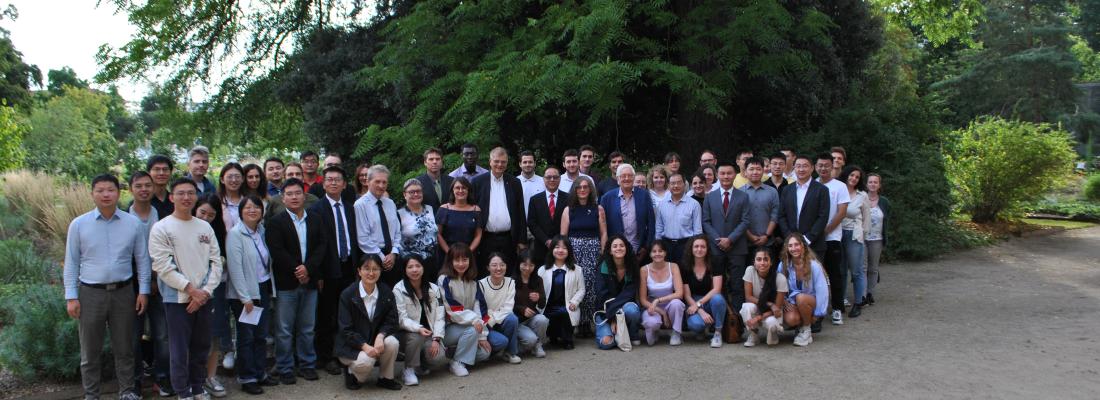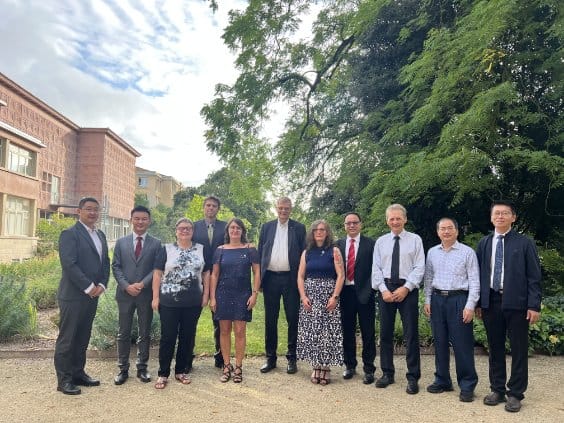Biodiversity Reading time 2 min
Renewal of the international associated laboratory ECOLAND building on successful results for Sino-French research on contaminated soils
Published on 31 October 2023

The international laboratory on Ecosystem services provided by contaminated land (ECOLAND), is the concretisation of a long-term cooperation on pollution and remediation of soil and water involving two laboratories, since 2005: the Soil and Environment Research Unit (LSE - INRAE and University of Lorraine), and the Guangdong Provincial Key Laboratory of Environmental Pollution Control and Remediation Technology (LEPCRT - Sun Yat-Sen University), with the involvement of INRAE’s AgroEcoSystem division. The first international associated laboratory on Ecosystem Services provided by Contaminated Land (ECOLAND 1), was set up in December 2015. The scientific complementarity, trust and implication of the researchers led to the success of ECOLAND 1, which was renewed in Guangzhou of the 27 October 2023 as LIA ECOLAND 2.
The aim of the LIA is to assess the potential of contaminated soils, particularly mining sites, and to develop remediation approaches and processes to restore their value. Three main issues are being explored:
- producing healthy food on contaminated soils using genetic resources and modifying soil properties;
- producing biomass for industrial or food use by recreating productive ecosystems on degraded and contaminated soils;
- using phytotechnologies to recycle metals present in contaminated soils. These strategies must also contribute to improving ecosystem services.
The dedication of the French and Chinese teams have led to major advancements in various fields of research, enabling both countries to improve environmental management, preserve biodiversity, and tackle climate change. More than 20 articles have been published in several scientific journals on soil pollution, the sustainable management of degraded land, and the development of phytotechologies such as agromining, or the remediation of rare earth mining sites.
Beyond the achieved results, French and Chinese researchers have forged a strong friendship through constant exchanges, greatly help with the mobilities opportunities offered by the LIA and regular meetings and workshops organized by the researchers on both sides.
A large number of researchers have benefitted from these exchanges, as well as students and young researchers with 4 to 6 Master's students each year, as well as 3 on-going co-supervised PhDs, 2 completed PhDs and post-docs.

Among activities, 4 annual workshops have also been organized in Guangzhou and Nancy during ECOLAND 1 to strengthen scientific collaborations and share research results within the scope the laboratory.
“The LIA ECOLAND has become a benchmark for Franco-Chinese cooperation in research and higher education. Therefore, I wish that in the second phase of collaboration, our research teams can expand their influence into more important areas by building upon their solid cooperation and inject new vitality into the Franco-Chinese friendship, which will soon celebrate its 60th anniversary.” Philippe Mauguin, INRAE CEO
Building on its success, the LIA ECOLAND 2 expands to include the Guangdong Provincial Key Laboratory of Agricultural & Rural Pollution Abatement and Environmental Safety (LARPAES) of the South China Agricultural University (SCAU).
In September 2023, a Chinese delegation of 26 people travelled to Nancy, France for the 14th Chinese-French International Workshop, which was also the kick-off meeting for ECOLAND 2 and an opportunity to discuss further collaborations between China and France. The visit of the GIFSI, a Scientific interest group on brownfield sites, near Nancy could lead to future joint experimentations on soil remediation within the French-Chinese laboratory.
Visit of the GIFSI site on September 2023, in Nancy, France
